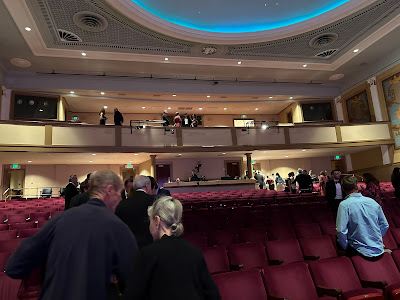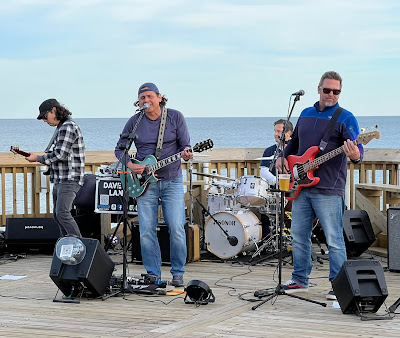Rightfully the "Flower Town in the Pines" because Summerville is also famous for its pine trees, but unfortunately, the pollen bloom that rains down from its branches, when the weather warms, is not enthusiastically embraced with happy celebration like the azaleas. With that being said, pine trees and azaleas are a perfect collaboration because azaleas grow well in its shadows.
The varieties of azaleas are as bounteous as its blooms thanks to hybridizing, or crossbreeding. They are native to North America, so it is likely they greeted our arriving ancestors in some form. All North American species are deciduous, meaning they drop their leaves. The evergreen varieties come from Japan where they can be hundreds of years old. The plants and blooms are mildly toxic, but I can personally dispute this assumption as not likely to be a deterrent to consumption. When I lived in northeastern Ohio years ago, I planted extensive rock gardens and plant mounds on my property. I attempted to incorporate azaleas into my scheme, but was unsuccessful. It seemed the branches were a favorite delicacy of deer, who ate the plants down to a stub before having a chance to pop a bud.
The azaleas that helped make Summerville famous are most likely the non-native variety. These originated in China and Japan, and made their way to the U.S. via England, France, and Germany. According to azalea historian Fred Galle in the United States, Azalea Indica (specifically speaking about the group of plants called Southern Indicas) got its name because when it was discovered, Asia was known as the East Indies. The first hybrids were planted in Charleston, South Carolina.
John Grimke Drayton imported the Azalea Indica from Philadelphia--where they were grown only in greenhouses by a nurseryman who also had a branch nursery in Charleston--and introduced them into the estate gardens of his rice plantation on the Ashley River. Marie Clinton Hastie wrote about the beginnings of her grandfather's garden, "it was somewhere in the mid 1840s that the Azalea Indica was introduced to Magnolia." His garden was the first in America to plant azaleas outdoors.
Thanks to the generosity of George Segelken, a pioneer in azalea propagation, Summerville became the place to see these uncommon plants in all their abundant glory in 1935. People came from all over to view the lush beauty of the town's Azalea Park. Segelken named the salmon pink colored azalea "Pride of Summerville." The park is the predominant venue of the Flowertown Festival.
The Flowertown Festival ranks as one of the largest festivals in the Southeast with an origin that goes back to 1972. The three-day festival also carries the well-deserved distinction as one of the Top 20 events in the Southeast by the Southeast Tourism Society. One of the main features of this family-oriented festival centers on the promotion of arts and crafts. More than 200 craft artisans and vendors are given the opportunity to showcase their creative wares throughout Azalea Park. The Taste is another feature that offers festivalgoers a chance to sample appetizers, main courses, and desserts from local restaurants. For the young ones, there will be a Children's Jubilee/Kid's Fest, for the adults, a Saturday farmer's market. Admission is free and parking is free. The Robert Pratt Band will be sending musical vibes through the town's historic district.
The current festival was predated by a previous one in 1941, when Summerville celebrated the first Azalea Festival—a four-day event that included dances, concerts, a parade, and a formal ball. The festival promoted local business and celebrated the town's community pride, a pride as old as the trees. Summerville's rich history dates all the way back to the late 1600s. In those early days, coastal residents sought refuge from the heat and mosquitoes among the cooler pines of Summerville. One of the trees redeeming features was the turpentine scent it emitted, and even doctors considered it a cure for a variety of respiratory ailments. Many came all the way from Europe for the pine air and its believed benefits, but it was not just for the air, they also came for the southern charm and beauty.
Spring is a great time to experience Summerville's southern beauty, charm, and community pride. It is the season to celebrate the Flowertown Festival in The Birthplace of Sweet Tea beginning on April 1st, and this is no April fools. Speaking of sweet tea, allegedly, in 2003 as an April Fool’s joke, the Georgia House introduced a bill making it a "...misdemeanor of a high and aggravated nature" to sell iced tea in a restaurant that did not also offer sweet iced tea on the menu. The bill never went to a vote. You can not accuse the Georgia House of lacking in humor. South Carolina adopted sweet tea as the state's Official Hospitality Beverage in 1995.
Of course, you cannot have sweet tea without a tealeaf, and Summerville owns the bragging rights for a particular variety. With French explorer and botanist Andre Michaux's planting of Oolong tea on the Middleton Barony in 1795, South Carolina was the only colony in America producing tea plants at that time. Later, Dr. Charles Shepard founded the Pinehurst Tea Plantation in Summerville in 1888, where he made tea growing a profitable reality. While Oolong tea could be your choice in making sweet tea, any kind can be used, though black tea is always a classic.
Well, that is Summerville—azaleas, sweet tea, and the biggest festival in the Southeast. While visiting for the Flowertown Festival, grab a glass of the best sweet tea at Sweetwater One Twenty Three. When you see me walking around town, be sure to say, "Hey." I am always interested in making new acquaintances.
































